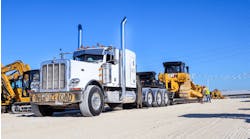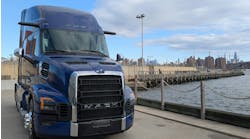Over the last 10 years technology has struck in ever facet of our world from computers to electronic paper towel dispensers in the restrooms. I say give me back the lever, two pushes and I have enough paper. And I cannot stand the horizontal blow dryers.
In effort to speed up assembly in the automotive world, they designed front hubs that are unitized for quick assembly. Lucky people who buy a new car may never really feel the pain of a front hub failure on their car. For some reason though, I have bad luck with right-side hubs failing. Not really the hub failing, but the wheel bearing, and normally it shows up as a ABS light indicator. I have had five such failures.
In the past when a wheel bearing was making a noise is was simple to replace the $20 wheel bearings on a Saturday morning. It’s not quite so simple today, as we have traded quick assembly for easy wham, bam, done wheel bearing adjustments. Today the average price of a hub on a car is close to $300 and it’s a nightmare to change. No more Saturday morning, but rather all-day Saturday providing you have the right tools. So it’sback to the dealer, and two front hubs on a car are close to $1,200.
Unitized hubs have now made the transition to our worlds of trucks for all of the same reason as above. They tend to last longer in miles because the bearings are larger and carry heavier load, but when we have one that fails the hub assembly is expensive.
A good friend and a peer of mine talk every Sunday morning about maintenance issues as a way of communication and challenging each other with issues of the week. Front hubs became a huge topic of discussion because he recently experience two failures with no warning and I have had some unitized hubs fail with no warning as low as 20,000 miles in 20,000-lb. axles and 150,000 miles in 12 and 14,000-lb. axles. Oil hubs, on the other hand, did give us early signs.
Failing is probably not be the right term as most of us understand that all parts have a predetermine life. What we wanted to figure out was why they were not delivering the life that we expected. In questioning the manufacturers, they told us that the hub has to be service from time to time. But with a unitized hub, I am not sure what servicing means except replacement.
At the recent TMC meeting in Nashville I ask the question about whether shops jack up the front end of the vehicle to lubricate the components (I was really asking about checking front wheel bearings). More than half said they follow the manufacturers’ recommendation, which today is not to jack up the front end. When I asked how they check front wheel bearings then, the crowd was mostly silent, which means most do not know, some do not care, and some just wait for a failure to occur. One fleet said they checked during their annual inspections, which occur at about 120,000 miles.
It was clear that most do not believe they have any failures, or at least not enough to look into their maintenance program. I do not believe a yearly inspection of front wheel bearings is enough and early detection from a leaky wheel seal is not a telltale any more with unitized hubs.
My friend keeps his trucks a million miles, so we jointly decided that somewhere after 600,000 miles the hubs have to be changed on all of the trucks. That’s about $1,000 each. Of course you could wait, but why?
Based on our experiences with unitized hubs, here are few suggestions for your PM Sheet:
- Raise the front end at each PM to lube font end components.
- Rotate, listen, feel for early signs of potential wheel bearing each PM.
- Remove the cap periodically for visual lube inspection.
- Lower the front end and lube as well.
- Determine when to change the unitized hub on a planned basis.
- Accept that the new hubs are much different than the old oil-lubed wheel bearings.
- Stay with oil front hubs if there is a choice for million mile trucks.
Before we could spend $100 for new wheel bearings when they were close to the end of their life, but we now are in the dark as failures occur with no early signs. Now we’re talking about predicting failure, not something that I subscribe to except for unitized hubs on front steer axles. Determining the right mileage limit may seem difficult, until disaster strikes. This is a Maintenance Insurance decision; put it on your PM SHEET!


